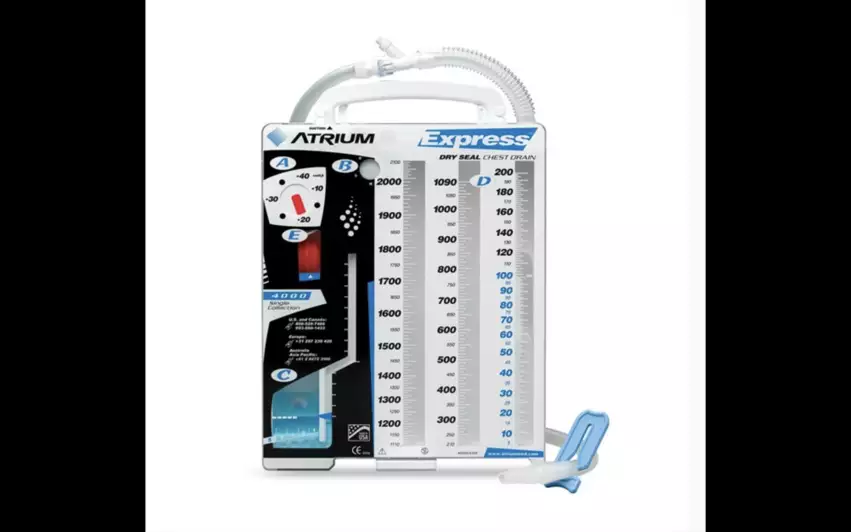FDA announces Class I recall of more than 250,000 chest drains over safety concerns
The U.S. Food and Drug Administration (FDA) has announced that New Jersey-based Maquet Cardiovascular is recalling more than 250,000 chest drains due to safety concerns. This is a Class I recall, which means the FDA believes using these devices could lead to “serious injuries or death.”
The Atrium Express Dry Suction Dry Seal Chest Drain is a disposable device designed to remove air and/or fluid from a patient’s chest cavity after cardiothoracic surgery. It collects blood from the patient’s pleural cavity or mediastinal area for reinfusion.
The chest drain includes a pre-packaged sterile water syringe used to monitor for potential air leaks if necessary. This syringe is the reason Maquet Cardiovascular was forced to announce the recall, because it has been linked to significant sterility concerns.
“If an Express chest drain is knocked over (device not kept in upright position), the water in the air leak monitor chamber could migrate from the air leak monitor chamber to the drainage fluid collection chamber,” according to the FDA’s advisory. “The patient could potentially be exposed to an infectious pathogen. The use of the affected syringe may cause serious adverse health consequences, including local infection, abscess empyema, mediastinitis, pyothorax, sepsis and death.”
The recall includes a total of 251,142 chest drain devices manufactured from December 2020 to November 2023. At this time, there have been no reports of patient injuries or deaths as a result of this issue.
Maquet Cardiovascular already sent all customers impacted by the Class I recall an Urgent Medical Device Correction letter in December 2023, noting these chest drains are still safe to use if the provided syringe is not used in any capacity. The company told customers the chest drain could be set up without water “if visualization of active pneumothorax is not needed” or a new syringe filled with sterile water is used instead.
The FDA advisory did emphasize that this recall is not necessarily a product removal, it is a correction. This means the device can still be used if the manufacturer’s recommendations are followed.


